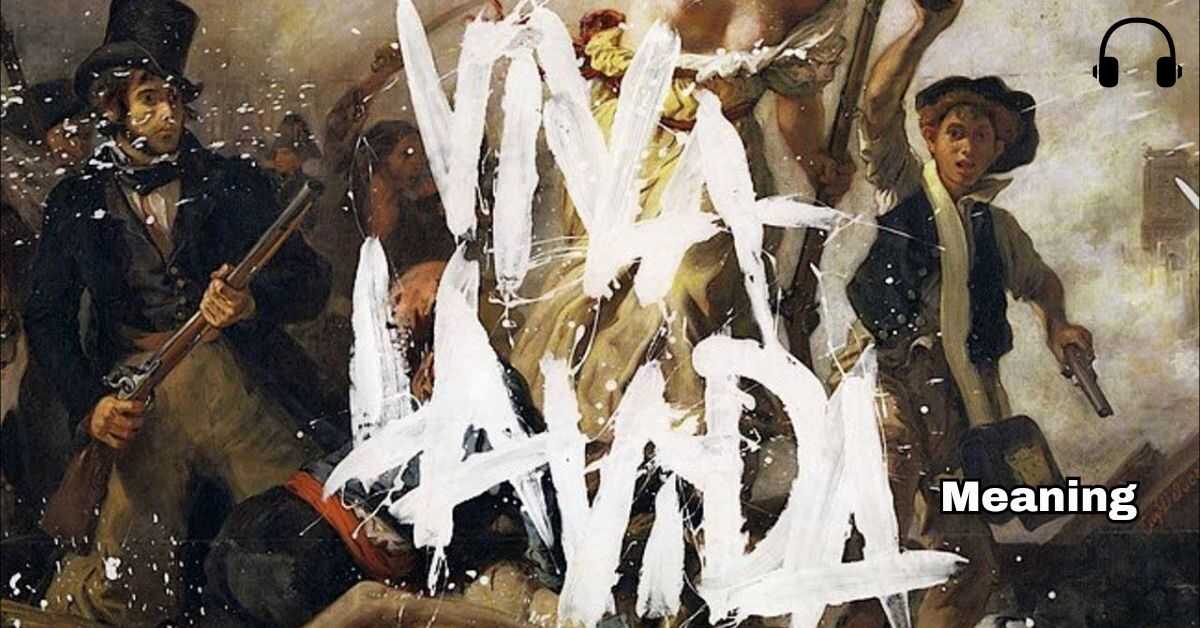Coldplay’s hit song Viva la Vida has captivated millions of listeners around the world. With its soaring strings, powerful lyrics, and iconic melody, it remains one of the band’s most memorable tracks. But what does Viva la Vida really mean? This article explores the Viva la Vida meaning, offering a deep dive into its song interpretation and breaking down its deeper meaning, touching on historical references in music, the cultural impact of Viva la Vida, and its relevance today.
The title itself, which translates to “Live the Life” in Spanish, suggests a celebration of life, but the lyrics are anything but straightforward. They reflect a fallen ruler narrative, a powerful figure who once ruled the world but now faces ephemeral glory and loss. In this post, we’ll dive into the Viva la Vida lyrics, musical symbolism in Coldplay songs, and the song’s lasting influence.
Historical and Cultural Context of “Viva La Vida”
Understanding the historical and cultural backdrop of Viva la Vida is key to interpreting its meaning. The song draws heavily on French Revolution symbolism, a period of upheaval where rulers fell from grace and the transience of glory became painfully clear. Political upheaval in art is a theme Coldplay expertly weaves into the song. It speaks to the rise and fall of power, and the consequences of revolution.
The song’s protagonist, a once-powerful king, seems to reflect on a moment in history when the mighty were toppled. Coldplay taps into the historical and political themes in music, particularly those surrounding revolutionary themes in music. This theme is further highlighted by references to religious imagery, such as Saint Peter references, who holds the keys to Heaven and symbolizes judgment and redemption.
Analysis of “Viva La Vida” Lyrics
The lyrics analysis of Viva la Vida offers a fascinating look into the mind of the song’s narrator. The opening lines reveal the protagonist as a king who once “ruled the world.” This powerful image of authority and dominance is soon contrasted with his fall from grace. The line “seas would rise when I gave the word” paints a picture of omnipotence, only to be replaced by the deep sense of loss when the king realizes his rule has crumbled.
As the song unfolds, we hear references to regal imagery in music, such as the “Jerusalem bells” and “Roman cavalry choirs,” all evoking imagery of past empires. These symbols ground the song in historical references in music and show how nostalgia in music can be used to explore the fleeting nature of power. The protagonist yearns for the past, yet is burdened by the reality of his downfall.
The Impact of “Viva La Vida” On Popular Culture
Since its release, Viva la Vida has left a massive footprint on pop culture. The song’s uplifting melody, paired with its reflective lyrics, made it an instant hit. It went on to top charts globally and became synonymous with both power and downfall in songs. Beyond music, its cultural reach has been immense. It has appeared in films, commercials, and has been covered by countless artists, making it a cornerstone in discussions of Cultural significance of Viva la Vida.
The pop culture impact of Viva la Vida continues to be felt today. It’s often used in moments of triumph, rebellion, or reflection. The line “I used to rule the world” has become iconic, and the song’s influence shows no signs of fading. Through its memorable lyrics, Coldplay successfully captures the feeling of nostalgia in music, making it not just a hit, but a cultural phenomenon.
Why is Viva La Vida a Good Song to Wake Up To?
One reason Viva la Vida is a great song to start your day is its energy. Despite its melancholic themes, the music itself has an uplifting, anthemic quality that can give you a sense of empowerment. The song’s musical symbolism in Coldplay songs plays a major role here. The soaring strings and rhythmic beat help create an emotional mood, balancing the sadness of the lyrics with the energy of the music.
The song also conveys a message of power, revolution, and downfall, which can feel motivating. Starting your day with such a powerful song can inspire you to take charge, face challenges, and embrace life. Viva la Vida captures a sense of optimism despite struggles, making it a great pick-me-up in the morning.
Why is It Called Viva La Vida or Death and All His Friends?
The full title of Viva la Vida is actually Viva la Vida or Death and All His Friends. This title holds deeper meaning, symbolizing the duality of life and death. “Viva la Vida” speaks to living life to its fullest, while “Death and All His Friends” hints at the inevitability of death and the fallen ruler narrative of the song. It’s a powerful reminder of the cycles of life and death, and the regal imagery in music used throughout.
By naming the song this way, Coldplay ties in themes of ephemeral glory and loss, capturing the essence of both life’s fleeting nature and the weight of political upheaval in art. The full title encapsulates the personal and political themes that are explored throughout the song, showing the fragility of both power and existence.
Is Viva La Vida a Saying?
Many wonder if Viva la Vida is a saying, or if Coldplay simply made it up for the song. The phrase itself is Spanish, and it translates to “Live the Life” in English. In Spanish-speaking countries, the phrase might not be as commonly used in everyday conversation, but it carries a universal message: live life fully and embrace all that comes with it. It’s not just a saying, but a powerful call to action, encouraging us to seize the moment and live without regret.
While Viva la Vida might not be a common saying, its message has resonated deeply with people around the world. It reminds us to live authentically, even in the face of struggles or downfall, just as the song’s protagonist wishes he could do.
FAQ’s
Is Viva la Vida a Happy Song?
Despite its energetic sound, Viva la Vida has a bittersweet undertone. The lyrics reflect a king’s fall from grace, making it a song about loss and regret rather than pure joy. However, the musical symbolism in Coldplay songs helps balance the heavy themes, creating a song that feels both triumphant and melancholic.
What Does Viva la Vida 🍉 Mean?
The phrase Viva la Vida translates to “Live the Life.” It’s a reminder to embrace life fully, even through hardships. The watermelon emoji 🍉 might just add a playful touch when discussing the phrase, but the core message remains the same.
What Is the Meaning of La Vida?
“La Vida” simply means “life” in Spanish. When combined with Viva, which means “live,” the phrase becomes a call to live life to its fullest.
Is Viva la Vida About Christianity?
While the song includes Saint Peter references and other religious imagery, Viva la Vida is not strictly a religious song. Rather, it uses these symbols to explore the themes of redemption, falling from grace, and the transient nature of glory.
Conclusion
Viva la Vida by Coldplay is more than just a catchy song—it’s a deep exploration of power, revolution, and the human experience. From its historical references in music to its profound lyrics analysis of Viva la Vida, the song resonates with listeners on many levels. The cultural significance of Viva la Vida extends far beyond its musical success, becoming an anthem for those reflecting on the rise and fall of life’s greatest moments. Whether you’re waking up to its anthemic melody or contemplating its deeper meaning, Viva la Vida continues to inspire, challenge, and connect us all.
Related
The Night We Met Lyrics Meaning
Dream, Ivory – Welcome and Goodbye Meaning











